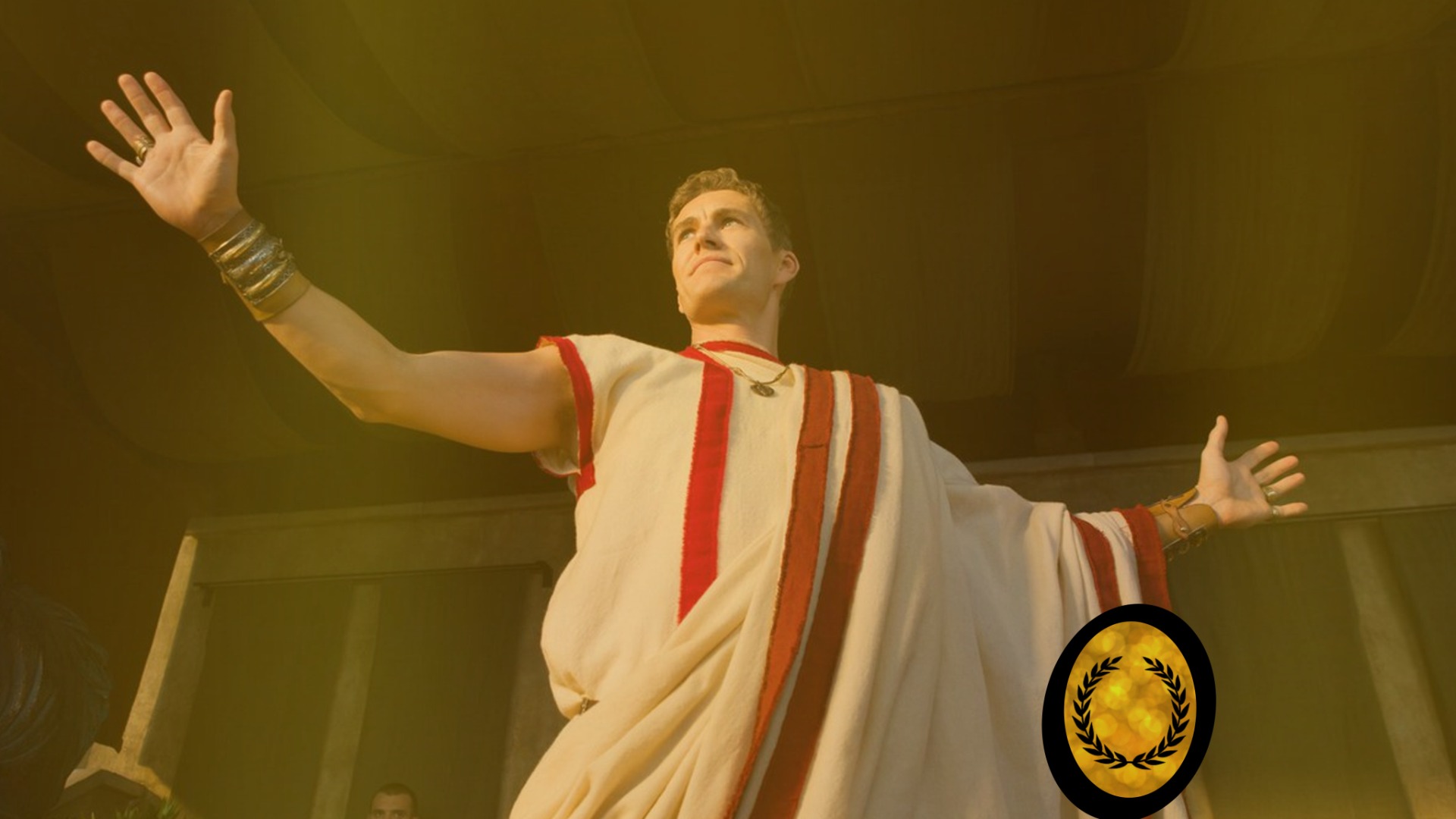Spartacus and Crixus enter the arena on match day, with anticipation when their legendary opponent appears before them. Theokoles enters the arena with many spectators applauding the legend itself with admiration and astonishment. Spartacus and Crixus quickly attack their opponent, fighting as one and manage to overcome the great giant.
Theokoles falls with big wounds, the crowd applauds and Spartacus and Crixus celebrate when their victory came quickly from their combined efforts. However, the crowd stops applauding when Theokoles gets up again, having played with them all the time, and screams Crixus' famous line: "Capua! Shall I start?" as a provocation before the three resumed the battle. Their combined attack fails when Crixus refuses to fight Spartacus and Theokoles manages to seriously injure Crixus. Theokoles is beheaded by Spartacus. Before finishing Crixus, Spartacus yells at Theokoles to get his attention.
Spartacus, taking advantage of Crixus's shield to launch himself into the air, makes a ferocious attack. Spartacus initially fights well on his own, but Theokoles quickly begins to gain an advantage, easily pushing the Thracian. Still not giving up, even with the interior exposed, Crixus takes a helmet nearby and reflects the light on Theokoles' face, blinding him momentarily. Spartacus seizes the moment, circles behind Theokoles and cripples him on his knees and strikes him repeatedly before finishing him off by beheading.














